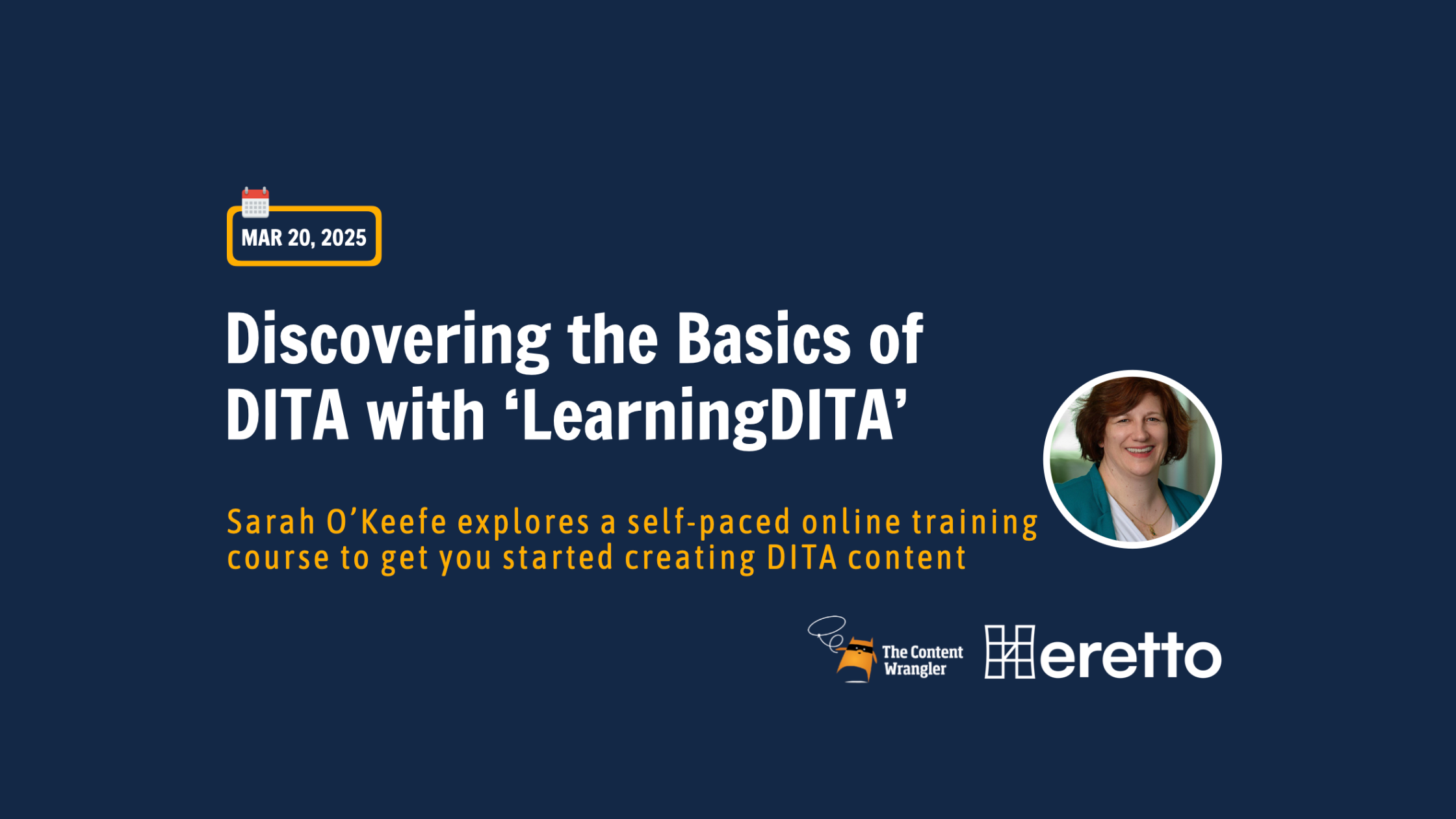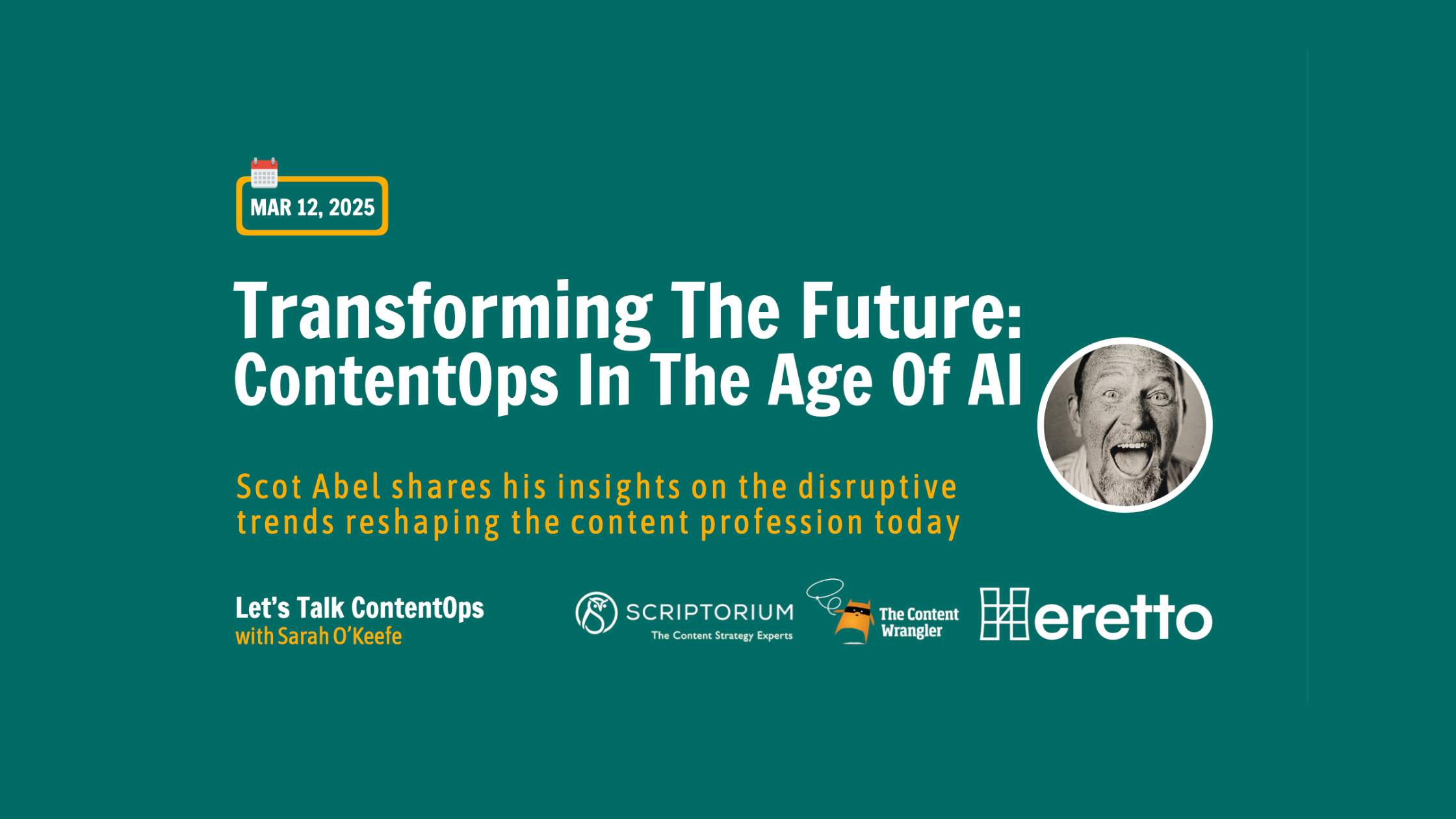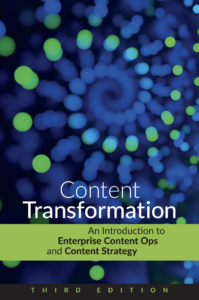Discovering the Basics of DITA with LearningDITA (webinar)
In this webinar, Sarah O’Keefe shares the basics of DITA—what it is, why it’s crucial for creating structured content, and how it revolutionizes consistency and efficiency in documentation. By exploring core elements such as topics, maps, and metadata, along with DITA specializations like task, concept, and reference topics, you’ll learn why organizations around the globe use DITA to craft modular, reusable content and put it to work.
You’ll be introduced to a self-paced, online DITA training resource called LearningDITA. Lessons include exercises, links to additional resources and videos, and quizzes to test your knowledge.
What DITA offers is a mechanism for extensibility that doesn’t break the standard. If you’re going to try to build out a system that is futureproof, as best we can without knowing the future, then we need flexibility. We need the ability to change things as we go, to extend, to add new output types, to add new semantics, to add new metadata, to add new systems into the equation.
— Sarah O’Keefe

















